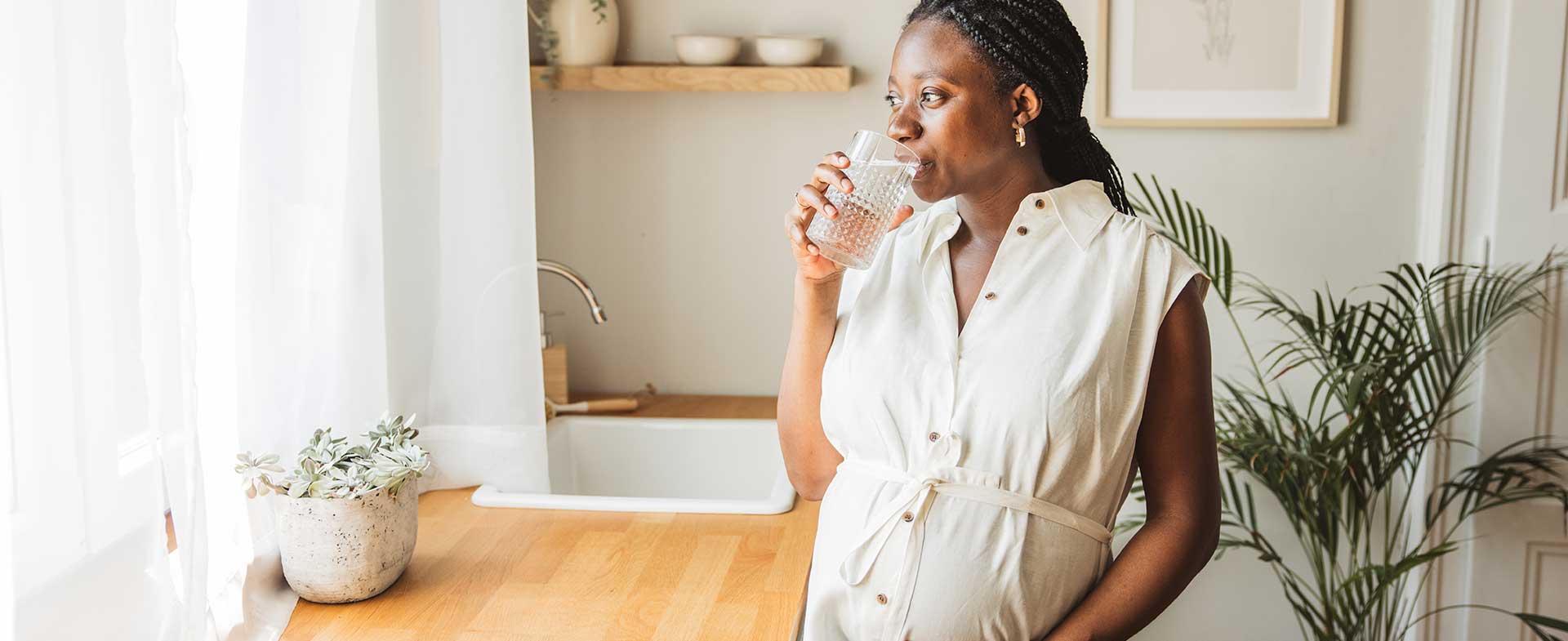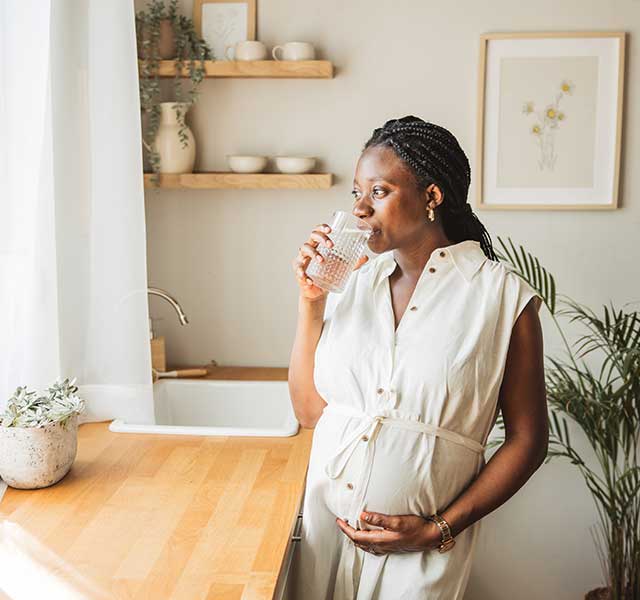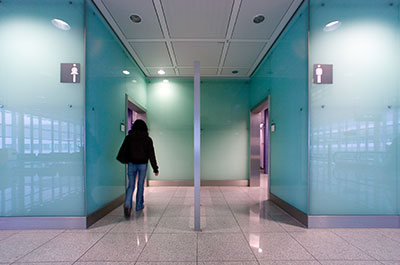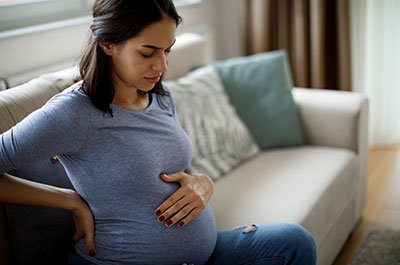During pregnancy, your body changes in all sorts of ways. Some unexpected pregnancy changes might catch you off guard. But there’s one thing you’re probably geared up for: Frequent trips to the bathroom.
Peeing a lot is par for the course when you’re growing a baby, says Samantha Raffee, M.D., a urologist at Henry Ford Health. But that’s not the only way that pregnancy affects your bladder habits.
“Pregnancy is a unique time, not only because of anatomical changes, but also hormonal changes in the body,” Dr. Raffee says. Those changes can affect your bathroom habits and even increase the risk of certain illnesses. Fortunately, there are steps you can take to stay healthy and keep your bladder happy during pregnancy.
Bladder Changes During Pregnancy
As your uterus grows during pregnancy, it can put pressure on your bladder. Meanwhile, your body starts making more of the hormone progesterone, which causes smooth muscles throughout your body to relax. Those changes can affect the urinary tract, causing a variety of bladder-related symptoms:
- Frequent urination: As your uterus expands, it can press on the bladder, decreasing the amount of urine the bladder can hold. That means you feel the urge to pee more often.
- Bladder leakage: That same pressure from your uterus also pulls on your pelvic floor (the muscles that support your pelvic organs). The result may be that you leak urine, a condition known as stress incontinence. “With a full bladder, you might be more apt to leak a little when you laugh, cough or sneeze,” Dr. Raffee says.
- Infections: The physical and hormonal changes of pregnancy can increase the risk of urinary tract infections (UTIs) and kidney infections. Untreated, such infections can cause complications like preterm birth. To avoid that risk, doctors often check for bacteria in your urine. If it’s present, they may treat you with antibiotics even if you don’t have any UTI symptoms.
- Kidney stones: Kidney stones aren’t common during pregnancy. But when they occur, they usually develop during the second or third trimester, Dr. Raffee says. As the uterus enlarges, it can press on the urinary tract and slow the drainage of urine from the kidneys to the bladder. Additionally, there’s an increase in calcium in the urine during pregnancy, which can add to the risk of stone formation.
How To Deal With Bladder Issues During Pregnancy
Want to avoid bladder problems before or after you welcome your baby? “First and foremost, be good to your bladder,” Dr. Raffee says.
There are things you can do to keep your bladder healthy:
- Eat right: Avoid irritating foods and drinks, such as citrus, spicy foods, caffeine and carbonated beverages.
- Don’t hold it too long: “You’re more apt to leak if you haven’t gone to the bathroom for several hours,” Dr. Raffee says.
- Drink wisely: It’s important to stay hydrated, especially when you’re pregnant. But if you drink a lot of water right before bed, you might be up for multiple bathroom runs during the night. Try to drink most of your water earlier in the day and cut back in the evening.
- Put your feet up: Many pregnant women notice fluid buildup in their feet and legs during the day. “When you lay down at night, that fluid can move into your body and produce more urine,” Dr. Raffee explains. Putting your feet up and wearing compression socks during the day can help keep fluid retention in check—and may help you avoid extra bathroom trips at night.
- Pelvic floor physical therapy: You’ve probably heard of kegel exercises, which can help strengthen your pelvic floor. But there’s a lot more you can do to keep your pelvic floor healthy. A physical therapist can teach you to perform exercises to strengthen a weak pelvic floor. They can also teach stretching and breathing techniques that help prepare the pelvic floor for delivering your baby. “There’s great value in working with a pelvic floor physical therapist during or after pregnancy,” Dr. Rafee says. “You don’t have to have incontinence to benefit from physical therapy.”
When To Talk To Your Doctor
As your belly grows, it’s normal to use the bathroom more often. Some pelvic discomfort is also normal as your body changes. But talk to your doctor if you experience symptoms such as:

Meet With A Urologist
- An urge to urinate that doesn’t go away when you pee
- Blood in your urine
- Burning when you urinate
- Cloudy urine
- Inability to pass urine
- Pelvic pain
- Sudden changes in bathroom habits (such as significant leaking or feeling like you need to go constantly)
Incontinence After Childbirth
After growing and delivering a baby, it takes time for your body to heal. Try to be patient if you’re still experiencing problems like incontinence. “It can absolutely take time to recover—as long as six to 12 months,” Dr. Raffee says.
Some women only develop incontinence after delivery, since childbirth can stretch and weaken pelvic floor muscles. Pelvic floor physical therapy can help strengthen those muscles. If you have any concerns about your bladder habits, talk to your doctor.
Reviewed by Samantha Raffee, M.D., a urologist who sees patients at Henry Ford Hospital in Detroit, Henry Ford Medical Center - Bloomfield Township and Henry Ford Medical Center - Lakeside.



